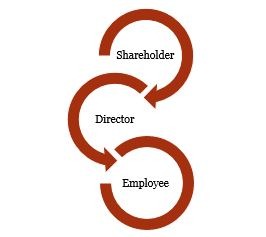
The following content is paid for by GAD Consulting Services.
By: Precious (Zulu) Mvulane CA (SA), RA & founder and MD of GAD Consulting Services
Many entrepreneurs spend a lot of time working in their businesses as an employee, company directors and shareholders. Many don’t dedicate time to see what is working and what is not working, and as a result, they operate as a one-man business until they run out of steam.
We need to be clear that these three roles are critical in any business, but they are not all equally important. The most ‘disposable’ role for an entrepreneur is that of an employee. This is because you can pay someone for their skills and experience which frees you to be a company director and shareholder. At the end of the day, you only have 24 hours in a day (time is limited). This position or role also costs the business the least amount of money, because an employee is paid the lowest of all three.
Where do you start?
1. Know what you want
First, design the life you want.
It is obvious how many entrepreneurs get themselves into the mess of performing the lowest paying job. Most start their businesses as technicians (doing the work) and don’t move on from this role.
Ask yourself the following questions:
- What do you personally value the most in life?
- What kind of life do you want to lead?
- What do you want your life to look like when completed?
- Who do your wish to be, deep down?
In short, great people have a vision for the way they want their lives to go. Until you take the time to articulate that, your business will not be ready to deliver what you want. Remember, business is just a vehicle to live your best life, not the destination.
 The critical difference between successful people and less successful people is that successful people don’t leave things to chance, they purposefully create their lives, rather than waiting for things to happen by chance or luck or opportunity. In other words, successful people work on their lives and don’t live their lives just to pay bills.
The critical difference between successful people and less successful people is that successful people don’t leave things to chance, they purposefully create their lives, rather than waiting for things to happen by chance or luck or opportunity. In other words, successful people work on their lives and don’t live their lives just to pay bills.
For your business to suit the life you want you will need to embrace change.
Change will only happen when you become committed to your goals rather than your comfort zone. Stop doing the same things expecting different results. Realise that your life is made up of small daily choices which sometimes seems insignificant, but that will all lead to the results you want. Embrace your desires and honour yourself. Life was meant to be lived with joy, love and peace.
2. Fire yourself as an employee
The aim is to fire yourself as an employee so that you can become a company director and later move on to be a full-time shareholder. In any economy, even this country, the shareholder gets paid the most, a company director is next on the list, and the employee gets paid the least.
The employee is paid to do whilst the director is paid to think. The shareholder invests money or time into the business so that the money works for them rather than working for money. An employee works for money in exchange for time.
For you to build a sustainable business, which one day you will get dividends as a shareholder, you have to get yourself fired. Donald Trump says it best, “you are fired.” Robert Kiyosaki, explains these principles nicely in the cash flow quadrant book.
You have to stop being self-employed and become a business owner. Remember being employed or self-employed means, if something were to happen to you, God forbid, you would lose all your income. Whereas a business owner or an investor gets passive income, your business generates income for you even if you don’t wake up.
3. Know what you are getting yourself into
Be clear on what the roles of a company director or shareholder demand in terms of compliance and governance. In summary, the shareholder is an investor and the company director is a manager of the business.
Here are some of the roles and responsibilities of a company director:
1. Organizational Development
1.1 Vision, Mission and Values
1.2 Business Model Canvas
1.3 PESTEL
1.4 SWOT Analysis
1.5 Financial and Operational Analysis
1.6 Strategy Plan
1.7 Operational Plan
You should take time, at least twice a year, to think and plan on your next move, that’s why it is important to develop a strategy and put systems in place to evaluate and monitor what is working and what is not working. Stop doing the job that pays you the least.
Ready to set measurable goals, learn to be accountable, increase your productivity and create a growth plan? Attend the GAD Simplified Business Strategy Development for Business Owners Workshop on 19 November 2019. The workshop will cover how you can differentiate your business from your competitors and increase revenue and margins, among others. Book Your Ticket HERE for the Johannesburg event.
SIGN UP for the GAD Consulting Services Newsletter and start learning to earn more!






